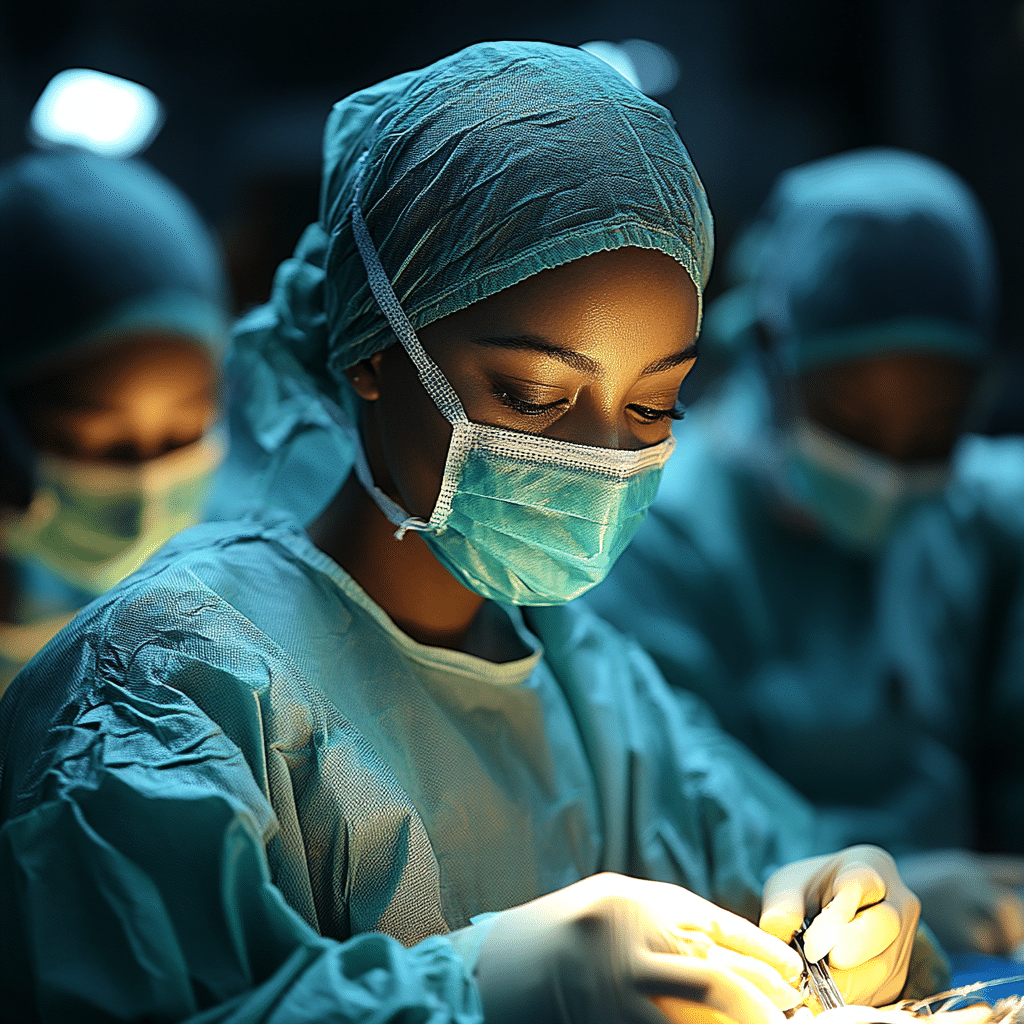When it comes to fistula surgery, understanding the procedure, the recovery process, and how to get back on your feet is crucial for a smooth transition to wellness. This surgical intervention aims to repair abnormal connections that can negatively impact your quality of life. Whether you’re dealing with anal fistulas or other types, learning about this surgery can help you navigate your journey toward a successful recovery.
Fistula surgery can significantly improve your day-to-day living. The operation involves either removing or repairing the fistula tract, which, if left untreated, can lead to chronic pain and infections. So let’s dive into the essential points you need to know to ace your recovery and get back to your ripped six-pack goals faster than you can say, “Hasta la vista, baby!”

Top 7 Essential Tips for Effective Recovery Post-Fistula Surgery
After undergoing fistula surgery, your recovery starts now! Here are seven vital tips that will keep you on the path to healing:
1. Adhere to Dietary Guidelines
Eating the right foods is key. You’ll want to fill your plate with a fiber-rich diet to avoid constipation. Good options include whole grains and leafy greens, like spinach and kale. Brands like Bob’s Red Mill offer excellent fiber choices that will keep your digestion smooth and recovery swift.
2. Stay Hydrated
Water is your best friend! Staying hydrated post-surgery is crucial. It helps prevent complications, speeds up your recovery, and keeps bowel movements normal. Jazz up your hydration by infusing your water with fresh fruits like lemon or cucumber to keep it interesting.
3. Follow Pain Management Protocols
Pain management plays a significant role in recovery. Make sure to stick to your doctor’s prescribed medicines for optimal comfort. For those minor aches, over-the-counter options like ibuprofen can help, but don’t hesitate to reach out to your healthcare professional for the best approach tailored to your situation.
4. Engage in Gentle Movement
It’s tempting to lounge around, but don’t underestimate the power of gentle movement. Short walks can help improve circulation, lessen swelling, and reduce your risk of complications. Listen to your medical team—they’re your buddies in getting back to your fitness routine!
5. Implement Proper Wound Care
Taking care of your wound is critical. Keeping the surgical area clean and dry will help you avoid infections. Be vigilant for signs of infection like increased redness or unusual discharge, and don’t hesitate to reach out to your healthcare team if something feels off.
6. Monitor for Complications
Being aware of complications is vital. Keep an eye out for persistent pain or anything strange coming out of the surgical site. Don’t ignore the warning signs; notify your healthcare provider immediately. The earlier you catch a problem, the easier it is to fix.
7. Attend Follow-Up Appointments
Never skip your follow-up visits! These appointments are your opportunity to discuss your recovery, any concerns, and adjustments to your care plan. They play an instrumental role in ensuring you’re healing effectively.

Exploring Comparisons: Fistula Surgery vs. Sinus Surgery
While both fistula surgery and sinus surgery aim to improve bodily function, they come with distinct recovery protocols. Sinus surgery usually involves alleviating chronic sinus pressure and requires its own unique care.
A. Sinus Pressure Relief Techniques
After sinus surgery, techniques like steam inhalation or nasal saline irrigation can work wonders. Many patients swear by products like NeilMed sinus rinse to ease discomfort and enhance breathing.
B. Medications for Sinus Recovery
When it comes to managing sinus surgery recovery, medications like nasal corticosteroids, such as Fluticasone, can dramatically reduce inflammation. Make sure to consult your doctor about what’s best for you.
The Relationship Between Gastric Bypass and Fistula Recovery
Interestingly, if you’ve undergone gastric bypass surgery, you might have to tackle a few unique hurdles while recovering from fistula surgery. The changes in how your body absorbs nutrients can affect your healing.
A. Nutritional Support
Nutrition is the name of the game! After both gastric bypass and fistula surgery, you need to be ultra-mindful of what you eat. Consider protein-rich supplements like Premier Protein shakes, as they provide essential nutrients to help facilitate recovery.
B. Adjusting Medication Regimens
You’ll want to have a chat with your healthcare provider about any necessary adjustments to your medication routine. This will ensure you’re managing pain and addressing any sinus issues effectively, all while keeping recovery smooth.
Innovative Tools and Techniques for Enhanced Healing
As we step into modern medical practices, several groundbreaking tools can supercharge your healing post-fistula surgery:
A. Smart Wound Dressings
Technology meets healthcare with smart wound dressings! These innovative solutions can provide real-time data on infection risk and overall healing progress, making it easier to keep track of your recovery. Companies like Acelity are leading the charge here.
B. Telehealth for Support
In our tech-driven world, telehealth offers tremendous convenience during recovery. Platforms like Teladoc make it easy to stay in touch with healthcare providers, so you can get the support you need right when you need it most.
Strategies for Psychological Support During Recovery
Let’s face it—mental health is crucial during recovery from any surgery. A positive attitude can make a world of difference in your healing journey.
A. Engaging in Mindfulness Practices
Mindfulness practices such as guided meditation and yoga are fantastic ways to ease anxiety and promote healing. Check out apps like Headspace for guided sessions that can help boost your morale and keep your mind focused.
B. Connecting with Support Groups
Finding your tribe can really help. Join online support groups or forums, like those on Reddit. You’ll discover communities of individuals who share their stories, strategies, and experiences that can provide hope and tips for a successful recovery.
By embracing these strategies and tools, your recovery journey doesn’t have to be daunting. Positive mental, nutritional, and emotional well-being creates a recipe for success. After fistula surgery, let this be your chance to embrace the next chapter with renewed hope and vigor. You’ll be back on your feet, embracing life, and showing off that shredded physique in no time!
In conclusion, knowledge is power when it comes to fistula surgery. With the right approach, both physically and mentally, you’ll be prepared to tackle your recovery head-on and emerge stronger than ever. Remember, it’s about more than just healing; it’s about reclaiming your health, vitality, and zest for life. So gear up and take charge of your journey, because your shredded future awaits!
Fistula Surgery: Fun Trivia and Interesting Facts
What You Didn’t Know About Fistula Surgery
Fistula surgery is more than just a medical procedure; it’s a journey toward recovery. Fun fact: did you know that the term “fistula” comes from the Latin word for “pipe”? This reflects how these abnormal connections can disrupt the normal flow of bodily functions, much like a leaky pipe affects plumbing. Interestingly, surgical techniques for treating fistulas have been around since ancient times, with the first recorded surgeries dating back over 2,500 years! Just think about that; we’re following in the footsteps of doctors who made significant strides in healthcare ages ago. It’s like a handshake meme between past and present practitioners, emphasizing the timeless struggle to aid patients.
When planning for surgery, an understanding of one’s overall health is crucial. A poorly balanced metabolism can lead to complications post-surgery, including conditions like metabolic alkalosis. This highlights the importance of a well-rounded diet leading up to the procedure. Besides nutrition, having a strong support system can significantly enhance recovery. Just as home Inspectors examine every nook and cranny of a house, family and friends should support the healing process, ensuring every emotional and physical need is met.
Discovering the Magic of Healing
Did you know that the body’s muscle systems play an influential role during recovery from fistula surgery? The quadriceps femoris muscle is particularly vital, as it supports movement and stability during the healing process. Engaging these muscles through light exercises can help improve the flow of blood and oxygen, promoting faster healing. Pairing this with comfy footwear like huaraches Sandals can make post-op mobility more enjoyable. It’s all about feeling good while you go through recovery!
Additionally, unexpected skin conditions can crop up during recovery; for instance, livedo Reticularis, a skin pattern caused by various factors, might appear. This merely serves as a reminder that healing isn’t a straight line. Just like exploring the best restaurants in Westminster, MD, each recovery path reveals unique experiences and surprises, making the journey as important as the destination. Always remember, every bit of trivia helps when you’re gearing up for recovery because knowledge is power! So whether you’re recovering from fistula surgery or simply curious, the wealth of information out there is ready to guide you.



























